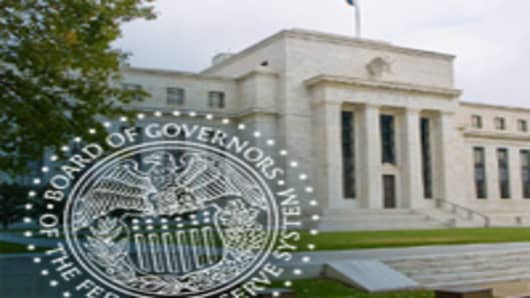"If you can do that, the implications for the long run are much more favorable in terms of inflation expectations and how it gets embedded into the economy,'' he said in an interview.
The "neutral'' level of interest rates is the point where monetary policy neither helps nor hinders growth. It is hard to pinpoint, but is above the Fed's current rate-setting of 2 percent, which Hoenig said was stimulating the economy.
"Two percent is accommodative; 2-1/2 percent is accommodative. So there is room to move back toward neutral without becoming tight, and without being neutral,'' he said.
"The goal is to get to neutral without tanking the economy. I think that it is important that we do that as reasonably soon as we can,'' he said, speaking in his 14th floor corner office of the bank's imposing new headquarters, about 1-1/2 miles from downtown Kansas City.
However, he does not anticipate a speedy return to strong U.S. growth. The economy will be subdued this year and into 2009, and Hoenig said it might be 2010 before it achieved trend-like levels around 2.5 percent.
Hoenig, a former bank supervisor who keeps a pair of binoculars handy to monitor financial institutions in the city's skyscrapers, has been president of the Kansas City Fed since October 1991. That makes him among the longest serving members of the Fed's rate-setting committee, although he is not a voter this year.
"Monetary policy is something that you do now that effects inflation in the future, not today. And that is why I think it is important to understand that we are in an accommodative position and the implications of that are is the inflation we have will most likely continue in the future,'' he said.
The Fed last month halted an aggressive rate cut campaign begun in September to shield the economy from a housing crisis and warned that risks to inflation had grown. But analysts are unsure how long they will hold rates unchanged.
Hoenig said the timing of rate hikes depends to a degree on financial institutions resuming normal lending practice as markets regain their poise and consumer confidence returns.
Low interest rates cannot achieve this goal alone.
"You expect too much from monetary policy if you think it can solve the problem, and if you try and make it solve the problem, you create a new set of problems,'' he warned.
At the same time, inflation risks were rising.
"You have an environment of policy that is accommodative on a global basis and the implications for inflation are that the risks are higher. That is a fact. That is not speculation,'' he said. "The world's central banks have to act accordingly. I am sure they will.''


